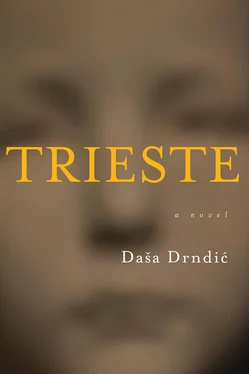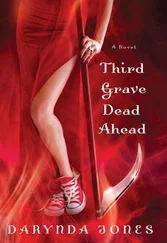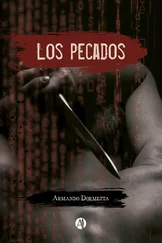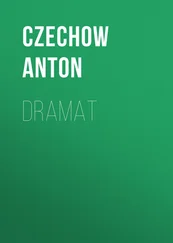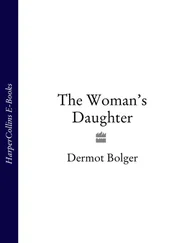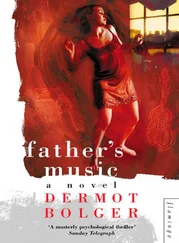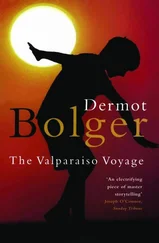In November 1938 Florian Tedeschi loses his job.
They know I am a Jew, he says. The night is balmy. The windows are open. The sea is murmuring. There is no moon.
At university they tell the professors Wear your black shirts, which does not appeal to most of them. Italian mathematics loses its finest people. Tullio Levi-Civita *is fired from the University of Padua, other universities fire Vito Voltera *Guido Fubini *and Beniamino Segre. *Enrico Fermi *goes to Stockholm in 1938 (with special permission from the Fascist government) to receive the Nobel Prize and does not return. Renato Caccioppoli is released from the asylum in 1943, organizes a railway strike and is nearly killed when strike-breakers disrupt the gathering. He takes part in meetings of the Italian Communist Party, sits often on the editorial board of Unitá, and with Unità’s editors, his friends Mario Palermo and Renzo Lapiccerello, he makes the rounds of the bistros, most often Gambrinus and out-of-the-way taverns where, until late into the night, with beer, grappa, cognac or Strega, he tries (with his friends) to work out what to do about the Nazis.
After the war, with many honours, as a member of scholarly academies and institutions, Caccioppoli returns to mathematics. He works on film. He plays music. He publishes. Sara Mancuso leaves him. He drinks. He drinks more. He often prefers to be alone. Occasionally, he goes to the opera with an old priest, to concerts of classical music, and then retreats again into his ravaged universes.
Into Euclidian realms and realms of his own. This is what he looks like:

On Friday, 8 May, 1959, around noon, he strolls along his favourite Via Chiaia, he has a short cappuccino and two grappas. He goes home. He waits for his best friend Giuseppe Scorzo Dragoni to arrive from Rome. Giuseppe is one day late.
That evening he shoots himself in the head.
The asteroid 9934 1985 UC is given the name Caccioppoli. Mario Martone makes a film about him. The Mathematics Department at the University of Naples is named Renato Caccioppoli .
Behind every name there is a story.
Frantic, on 14 December, 1938, Florian Tedeschi humbly requests to be received by the banker Pasquale Simonelli. *
Four days later Florian Tedeschi sits in a salon at Villa Simonelli and with a trembling hand he brings a cup of fine, nearly transparent Chinese porcelain to his lips. He quietly sips the black tea. Inanely, though maybe not, he says: My wife adores Gigli. And I, too, adore Gigli . Simonelli says not a word.
Simonelli is a large man, and what’s more, he’s portly. Next to him Florian is tiny. Florian is wearing a beige trench coat, rumpled and tattered, which he doesn’t take off while he sips Simonelli’s tea. Seven days later, Florian Tedeschi goes to Tirana where a job as an accountant awaits him at a large construction consortium. Everything is as it should be. Florian is not plagued by doubts. In 1938, of the 47,000 Jews then living in Italy, 10,000 are card-carrying members of the Fascist Party.
In early April 1939 Italy attacks Albania. The Albanian Parliament votes to be annexed to Italy. King Zog flees to Greece. In Naples Ada sells her furniture, bedding and rugs; she gives away their clothes. In May the family are reunited. Florian makes headway at his job. He is proud. He buys a new suit, Italian, a new trench coat, black, that he tightens with a belt. In Tirana they tell him You are being transferred to the Banca di Napoli. You are going to Vlorë. The climate is mild there and you can swim in summer . So, the Tedeschi family swim that summer.
Vlorë has many names which are differently spelt and pronounced, more names than Gorizia, and all of these names pour into the town on an inlet covered by a blue cloak of air, over which, at night, the mountains whistle. Aulon, Avlon, Avlona, Avlonya, Vallona, Valona, Vlona, Vljora, Vlonë, Vlorë. Olives, black and oiled like the eyes that open Haya’s first kiss with Ludovik, whose yellow shirt has a hole on the right shoulder. Ada’s vegetable pastries, lambs from Karaburun, cold yoghurt before leaving for school, where, as in Naples, there hang portraits of Vittorio Emmanuele and Mussolini, harapash, toasts with Falanghina . A new waystation on the journey, the route of which Haya cannot discern. Vlorë, like a pocket-sized Naples. An Italian school, Italian neighbours, Italian chocolate. A romantic trip to the island of Saseno where the troops are stationed (our troops, Florian says), the drip that jiggles on the tip of Ludovik’s nose, misted by Haya’s breath. Valona, fortified just like Gorizia. Her first visit to the theatre. Yet another language for the same departures, the same flights. Sea: det; touch: prekje; fear: frikë flag: flamur; Jew: çifut: war: luftë journey: udhëtim . Sadik Zotaj street, a bench beneath the window on which Haya kneels and waits, waits? Aron, a mohel from Corfu, arrives and circumcises Orestes, while Florian is off touring Banca di Napoli branch offices in the interior. Oh, yes, life is beautiful. It flows by the Tedeschi family, who find palms, sandy beaches and abundant fresh seafood in Valona to eat with Barilla-brand tortiglione. Many years hence, as so often happens in Haya’s old age, the past elbows into her wait like a blow, like a surfacing diver, breaking, transparent and wet, through an elusive wall (of memories), and Valona shimmers before her eyes, completely changed. The bygone decades have formed clusters of insights dwelling in the meanders, the warehouses, the hiding places of her consciousness, wrapped up in the ironed rags of logic, and now they start tumbling out of warped compartments, piling up, like rubbish, around her feet. She tries to bring order to this vast disarray, because after she retires from her job as a maths teacher at the Dante Alighieri Classical Secondary School in Gorizia, she has the time, yes, while she waits, she has the time to wonder How could I not have known? How could I not have seen?
The first banner of Albanian independence is raised in Valona back in 1912. When the Tedeschi family move to Valona in 1939, there are about 600 Jews living there, but she, Haya, remembers only Fanny Malli, because Fanny led a rabbit on a leash, and Ruben Ketz, because he had pockets full of black pebbles and spoke Albanian better than she did. In retrospect, she knows there was once a synagogue in Valona, which the Italians turned into a weapons armoury during the Great War, and there had been a Jewish cemetery, because before the bombs began to fall, while walking with Ludovik across a ploughed building site, she noticed a little tablet with a Star of David on it and oddly carved letters. Those are our enemies, Florian and Ada say, the Greeks and the Albanians, the partisan bandits . Haya believes there are enemies everywhere around them, although she is no longer a child. Italian boats sink in the Albanian port. The Italian confectioners shut down.
We are losing the war, Florian says.
The Germans don’t like us, Ada says.
In Tirana, Enver Hoxha closes his shop, called Flora, where he sells alcoholic and non-alcoholic beverages, sandwiches and tobacco, for the opening of which he had submitted the necessary paperwork to the (Italian) municipal administration, signed Envero Hoxha. In a rash of demonstrations, Albanian anti-fascists clash with the carabinieri and the local police. The newly sworn-in Albanian prime minister, Mussolini’s favourite Mustafa Merlika-Kruja, persecutes, arrests, tortures and kills all those who are against the regime. The Italians capture Koçi Xoxe and condemn him to death by hanging. The youth leader Qemal Stafa is killed. In Korçë, anti-fascists set fire to the barracks of the Italian Army, and on 24 July, 1942, they blow up an armoury with the weapons inside; the Tedeschi family run into the textile shop on the ground floor of their building and hide among the bolts of floral cotton; they themselves becoming a decoration, a pattern, in the growing maelstrom. At Tirana airport the spotlights are smashed; the Communists sabotage the central telephone switchboard and cut all telephone lines, and the organized uprising begins. Florian Tedeschi continues making the rounds of the interior branch offices of the bank where he is a loyal employee. Ada packs the basics. Orestes declares, I want to go for a swim . Paula skips rope in the living room. Nora says, I got my period . Down in the cellar Haya presses Ludovik’s icy fingers between her legs, then twists like the stem of a yellow gerbera and says ah . Her whisper and Ludovik’s whisper light up the woodshed, from which cats scamper, prowling for rats
Читать дальше
